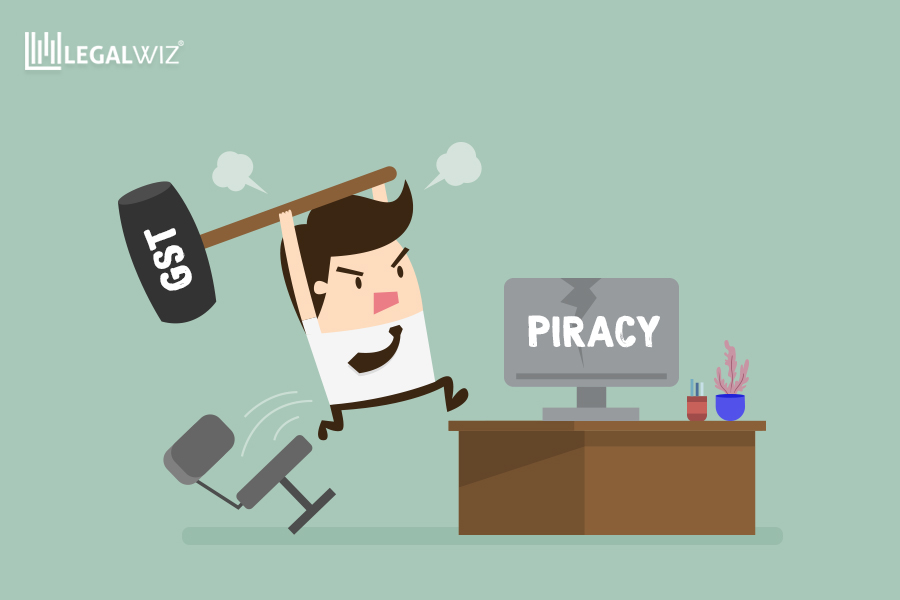While the process of digitalisation has made way for an economical, environmental-friendly and easy accessibility of network to share the written words, the diminishing popularity of the publishing industry might not want to see digitalisation in the same light. In this scenario, GST implementation (goods and services tax) adds fuel to the fire and requires clarifications.
It is essential to file GST return online if your business turnover exceeds the threshold limits. But first, you should choose a suitable business form for your company. LLP (limited liability partnership) is a very preferred form of business as partners will have limited liability in that. LLP (limited liability partnership) company registration is compulsory to start your business. It requires legal compliance as well to avoid any penalty and punishment.
This blog would help you to understand the publishing industries’ difficulties in relation to India’s most significant indirect tax reform and how the levy of goods and services tax can help reduce the written word piracy.
According to the current tax status, GST (goods and services tax) will not be applicable to all kinds of printed books. While this can be the excellent opportunity to keep the circulation of the books across the whole country, especially in the remote areas where there is only little digital penetration, this exemption from the GST (goods and services tax) would be more or less beneficial to the readers and not to the publishers.
Books might be exempted from the GST (goods and services) tax purview, but the materials that make the whole book will not be exempted. Booking making requires some raw material such as paper pulp, paper, glue, carton boxes and other material that directly used, attracts the GST between 12% to 18%. The publisher of the books bears this cost of GST, but they cannot claim it as the sales of books is exempted from GST. Meaning, publisher of the books cannot claim ITC (input tax credit) because the GST is exempted in this scenario.
Let’s now understand this scenario with an example given below;
A publisher purchases a raw material to print a book worth Rs. 1000 which taxed 18% on GST. This means that raw material would cost around Rs. 1180. Once the book is produced and ready for sale in the market, it would be priced as per the current market indexation.
Suppose its price would be Rs. 2000 and as this book is exempted from GST, the subsidiary cost results from the book of Rs. The publisher would pay one hundred eighty rupees as they will not be able to claim the input tax credit (ITC) on an exempted product. Hence, if the publisher is about to earn Rs. 500 from the book (subtracting the utilities, royalties and so forth), they would now be able to earn Rs. 320 from the book. This system interrupts an otherwise balanced indirect tax payment by increasing the publisher’s liability.
Now, what can be done to correct this situation?
Rather than exempting books from the purview of GST, the GSTN can place books as a separate category under the slab of zero rates or five per cent GST. If books will be zero-rated, then they are not exempted from the GST purview. This enables the publishers to claim the ITC (input tax credit) and does not interrupt the balance of indirect tax payments.
If books were taxed at 5% rate under the GST (goods and services tax), it would resolve the issue of additional cost to the publisher and bring the issue of piracy under control. That can be done because the whole mechanism of GST relies on showing a balance of credit. A taxable person can claim ITC (input tax credit) under the GST framework only if the credits match the recipient’s paid GST amount.
Let’s now understand this with another example with a firm having LLP company registration. If a person who is taxable claims ITC (input tax credit) worth Rs. X amount then that amount must have been paid by all taxpayers who have bought the book and paid the mentioned GST on it.
Suppose the publisher does not bear a subsidiary cost. In that case, it can assist in curtailing the leakage of data that gradually leads to publishing zillions of pirate copies of the books. If books are placed under the purview of GST (either at zero rate or minimal rate), can resolve an otherwise disrupted system in the publishing industry.
